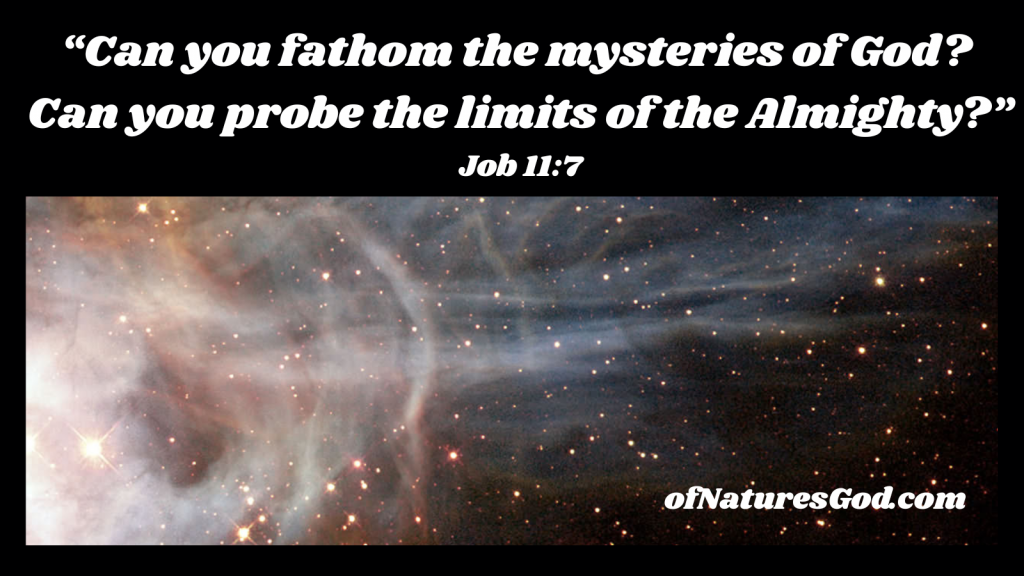Skepticism carries a basic disposition of incredulity or doubt to their inquiries. It is the default setting of all good analysts, detectives, and investigators. The word comes from the Greek from Greek skeptikos, meaning thoughtful, and from skeptesthai “to look, consider” and some say it is mirrored in the Latin scepticus (but I cannot confirm the Latin, this word is not in Cassell’s Latin Dictionary and seems to simply be a Latinized version or borrowing of the Greek word). The Greek includes the concepts of inquiring in a “thoughtful’ manner, “to look” or to “consider” in a detailed and serious investigation. Basically, this is what every investigator or analyst is expected to do. But is this what most people really mean when they say: “I’m a skeptic”? Not in my experience.
Before we go farther, I would like to welcome back my regular readers and encourage you to share this with other people who are questioning their spirituality and want to deepen a relationship with the Divine. I welcome questions and comments below, your address with not be published or visible to others it is simply a way to control spam. Further, we do not and never will sell information about any of our readers. You can also contact me directly at Rivan.Elan@ofnaturesgod.com – but be aware that I don’t check that email daily. However, I will respond to every comment and email that is not spam or an attempt to sell something.
There is nothing wrong, my brothers and sisters, with a serious inquiry into issues of faith or scripture or any question meant to search out the truth and deep meaning of scripture. God gave us our mind to use. It is the very curiosity that God placed inside us that leads us into a deeper understanding of the Living God and a fuller relationship with him.

There are many types of faith and not everyone is driven by this drive to understand and dig to a deeper level. That is OK. I believe that there is something beautiful in a faith that just accepts and follows simply. But I am not a simple man, and I never have been, God created me with an almost insatiable curiosity and so I use it to investigate and learn all I can about the Living God, the Ground of All Being, the Source of all that is. I want to know who the Messiah is and who is the Most High God as well as how the Holy Spirit moves and works. I also, being a military man, want to know all I can about our enemy. If you are here, you probably have a curiosity as well because that is, after all, what I do here.
Doubt is a part of who we are, but I know longer have even the slightest doubt about God, heaven, hell, or the unseen realms. I do have a lot of questions but no doubt as to their existence and influence on our lives. At some point the investigator needs to make a decision that he or she has verified enough to proceed on with an inquiry shifting from “does this exist?” to exploring the: what, when, where, how, and why, of that existence. As I often told my sons. If you think you experienced something odd or even paranormal first do your best to explain it away scientifically and rationally. But at some point, the rational thing to believe is that there really is something there. Anything else is not skepticism or investigation but denial.
God did not give us our mind so we could shut it off and not use it. Our curiosity and doubt is embedded in us and when we seek answers, as I do, it is the doubt and the answers found that lead us into a stronger faith. It may even be that a faith that has never entertained doubt or been challenged may not be a very strong faith at all. I have known people in my life who seemed to be strong believers but as soon as they ran into adversity they completely crumbled. They were the “sunshine patriots” of the Faith. Their faith was only good as long as everything was working out fine but not strong enough to carry them through hard times. That is no real faith at all.
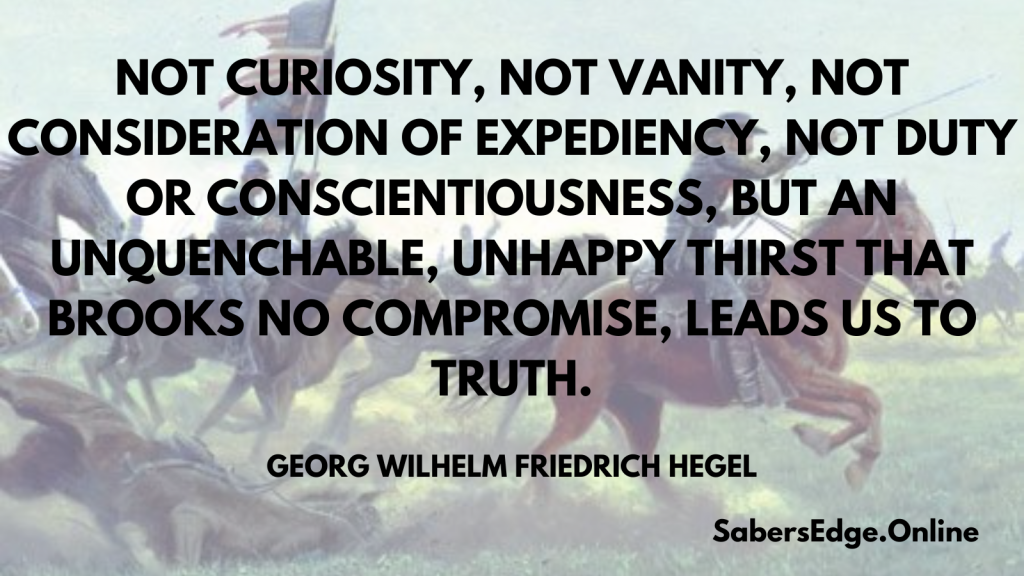
On the other side of the coin from the skeptic is Errol Brunhaus. He sat next to me in the choir at church when I was a young teen, his wife had taught me in Sunday School and Vacation Bible School for years. But now she had died and so had his only son. Trial upon trial was heaped upon this man yet on Sundays you could hear his booming base voice from the choir loft declaring “Amen” or “Hallelujah” when the pastor made a particularly good point. (This was even more noticeable because no one else in the church did that. We were, after all, Methodists and expected our faith to be decent in good order, methodical, and above all quiet.) His smiling face and positive living assertion that we were all safely in God’s care was a constant in my life growing up in the Church community. He was not a skeptic, he had a real, living, breathing faith and relationship with the Most High God, the Son, and the Holy Spirit. I am a skeptic, but I also have a real, living breathing faith and relationship with both the Divine Godhead and the Church (both the Church embattled, and the Church glorified.)
All Christians SAY they believe in both the church embattled here on Earth and the “communion of Saints” both living and dead and they assert that belief whenever they say the Nicene or the Apostles Creed, but very few churches and denominations live this out in their daily faith as well as do the Catholic and Orthodox churches. (For more on the Creeds and the basics of Christian belief see also: WHAT DO “REAL” CHRISTIANS BELIEVE? – ofNaturesGod.com )
In the book “Your God is Too Safe” by Mark Buchanon writes:
The word skepticism has an interesting etymology. It means to look at a matter closely, to scrutinize, to study with great care and in minute detail. Based on this definition, what the church needs it not less but a bit more skepticism. I met a man once who told me he didn’t believe in the Bible because he was a skeptic. I asked him if he had read the Bible.
“No, not really,” he said. “I told you; I’m a skeptic. I don’t believe it.”
This is not skepticism. This is its opposite – a refusal to investigate, to scrutinize, to ponder deeply. One thing skepticism is not is an excuse for evasion, an alibi for idleness. It is not a self-imposed boundary to keep you from embarking on any deep and meaningful search…This form of skepticism is only a subtle way of lying to ourselves, like telling ourselves the world is flat to avoid the burden of launching dangerous and costly voyages beyond the horizon.
Any true skeptic worthy of the name is both hunter and detective, stalking the evidence, laying ambush, rummaging for clues, dredging the river bottom, wiretapping phone lines, setting traps. A skeptic is passionate about discovering the truth and wants to believe [but only if it’s true, it] …safeguards against the hypnotic power of that wanting. So, he tests.”
Buchanon, Mark; “Your God Is Too Safe”; p.65
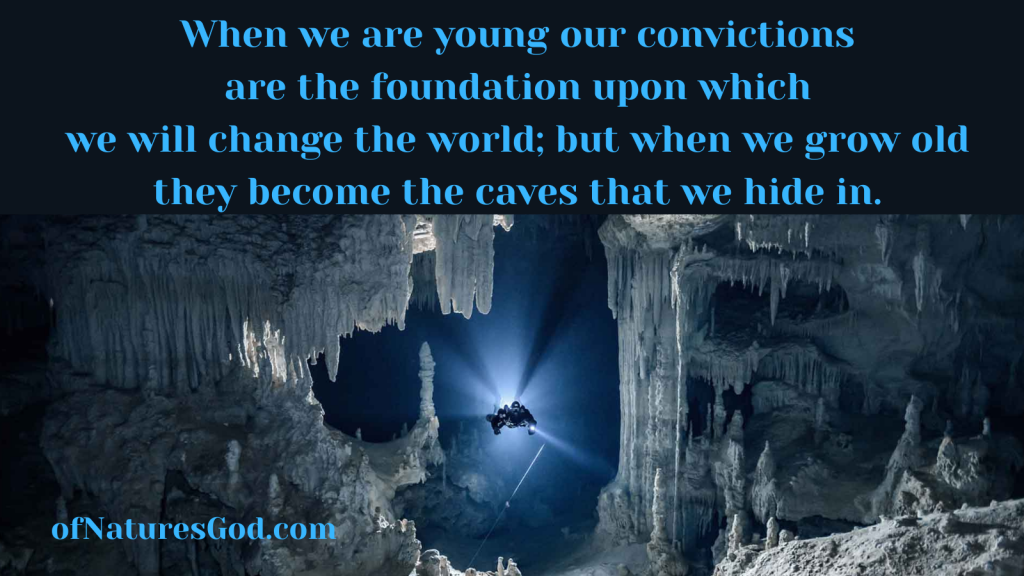
Unfortunately, in my experience, most of the people I have encountered who say, “I’m a skeptic” actually have no interest in thoughtful consideration, facts, or investigation. They simply assert their beliefs and refuse to even consider any of the facts, data, or testimony. That is not skepticism that is denial. It is like Buchanon said in his book, the opposite of skepticism: “This is its opposite – a refusal to investigate, to scrutinize, to ponder deeply. One thing skepticism is not is an excuse for evasion, an alibi for idleness.”
Today, when people say, “I’m a skeptic” they more often mean “I am in denial and refuse to believe in that” or “I have a dogmatic belief in the non-existence of this subject, and I will accept no arguments or evidence that will change my mind.” THAT is not skepticism, it is hardheadedness, stubbornness, or simply fear that you might change the paradigm that they have built their whole life around. Instead of “I’m a skeptic” they should say “I’m afraid and I don’t want to talk about it.” God does not fear skeptics, but some who claim to be skeptics seem to fear God.
I believe this is partially encompassed in the following:
I had a friend, Richard, who worked for the Nebraska State Government. He knew someone at work that was obsessed in attacking his belief in God; Richard’s “invisible friend” as the man called it. One day Richard asked him, “If God is just an “invisible friend” or a “figment of my imagination” like you say he is. Why is it so important to you to attack it? Why does my belief in an “invisible friend” that doesn’t affect you in any way matter to you?” The truth is it wouldn’t matter at all. But it DOES matter to athiests. They don’t just “not believe” they attack the faith at every turn. I believe it is not because they are skeptics but because they are afraid. They are afraid they might be wrong. And if they ARE wrong the consequences of their unbelief are extremely bad for them. Therefore, anyone who believes is a constant reminder to them that they may be wrong and that if there is a God then they are “frakked” (as they used to say in the series Battlestar Galactica.)
Most skeptics are not really skeptics searching for truth. They are people who are afraid and don’t really want to know.

A similar matter is a plethora of YouTube channels by self-proclaimed “experts” who seem to have read a couple obscure books and decided they knew everything about the subject and started a YouTube Channel. These are sometimes spawned by people who either have never read or don’t understand the Bible yet they talk about the “lies” of religion and in the Bible as if they have. Beware of them. [For more on this topic see: https://ofnaturesgod.com/dont-be-deceived-beware-of-online-christianity-and-youtube ]
The fake “skeptics” of our society don’t really want to hear the evidence any more than they want to hear the increasing trove of archeological evidence for the truth of Biblical stories. Like Troy in the Iliad, people once thought that this ancient city and its story to be a myth and they dismissed most Biblical stories the same way. But then, Troy was eventually discovered by Heinrich Schliemann, who “with the Iliad in one hand and a shovel in the other” proceeded to search for and ultimately to find the ruins of the ancient city of Troy as well as the evidence it was destroyed in flame and violence. Like Troy, every year more and more is found by archaeologists that substantiates the Biblical record and refutes earlier scientific criticism of the historicity of the Bible. [If you can afford it, I used to have a subscription to Biblical Archeology, and I really enjoyed it.] I could run a whole website solely on evidence of the truth of Biblical witness, but I have never been a great fan of apologetics. I believe apologetics is an important discipline it just isn’t mine. I think the efforts of apologetics will only get through if the Holy Spirit has prepared the way in advance and put chinks in this armor of denial. The Bible says as much also.
Now there are REAL skeptics out there. I was once in a class of adult students for religious initiation and there were a few people who said they spent hundreds of hours listening to apologetics and videos touting evidence of the existence of God and the truth of scripture before they ever overcame their doubt enough to come to this class. THEY were real skeptics. They had doubts and used those doubts to spur investigation. Real skeptics actually investigate and consider evidence regarding the area that they doubt because they are not in denial, they want to actually know what is true. Fake skeptics simply dismiss it as not worth even looking into.
How can ANYONE know if something is worth looking into if they refuse to look into it?
Now there is nothing wrong with doubting. One of my favorite verses in the Bible is:
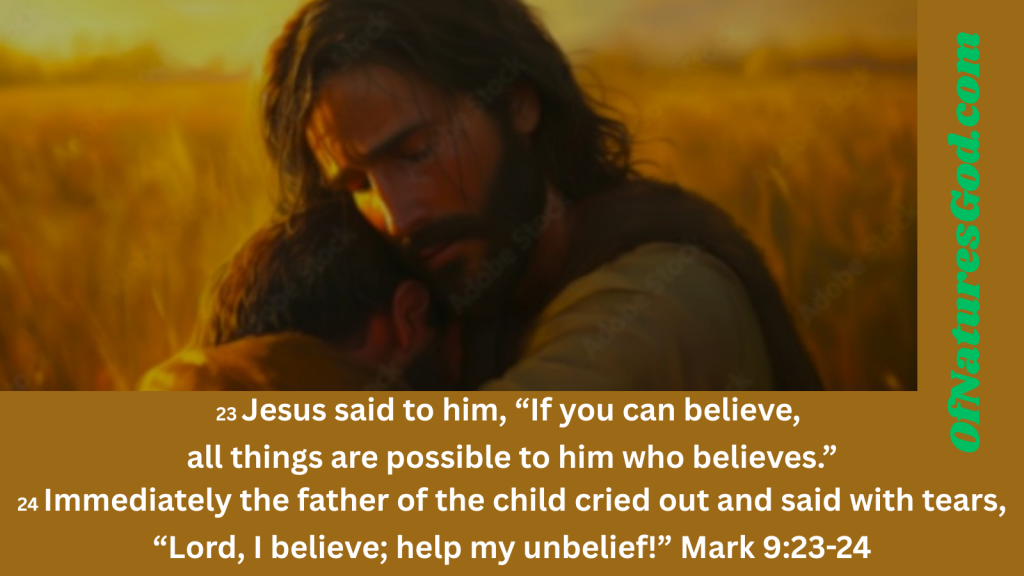
I am a skeptic. After what I saw in the military and in intelligence I had serious doubts about who God really was, I didn’t doubt God’s existence (I have been sure of that since my near death experience where the angel told me, “this is not your scheduled time and you have not completed the task God sent you to accomplish, but God says that you can come home now, if you wish.” I could “see” heaven through a tunnel of light and what’s more I could “feel” heaven. It felt like…home,) but I began to wonder what I had missed because my simple “Sunday school faith” did not fit in this world of darkness that I had come to know. I did a deep dive into comparative religion and philosophy using all of the skills I had been trained in for intelligence analysis and investigation. I wanted to know the truth. Now I do. There is a God, and s/he/it is recognized in some form or another by every major culture on Earth, and the observations that are based on natural religions, and wisdom literature (like Judaism,) are remarkably similar at their base to others. The religions are very different but there are many similarities that are too numerous to just dismiss out of hand. As Saint Paul and the Psalms and Proverbs all say, God has revealed himself through the wonders of nature, so we are without excuse. There is not room to go into that more here.
I am no longer a skeptic about God or who God is, nor the truth of the Christ. I feel the evidence I solid and certain. How ever I still skeptically examine scripture. “OK, this is what is says, but what does it really mean at the deepest level.” Now I want to dig up every piece of evidence and leave no stone unturned to get a better understanding of this God whom I believe in and have encountered.
I have also encountered the minions of his adversary. I have no doubts in my mind about the existence of either. They are all TOO real and God has sent me against them. That is not a brag on my part. It is a caution. I don’t think they are encounters that any sane person would like any part of, I certainly didn’t. However, as a man of God, I cannot let his children suffer at the hands of the enemy and do nothing. So, since I don’t advertise this at all, when people just show up or say, “I don’t know why I’m telling you this but…” and they share about a darkness that has entered their life that they desperately want gone I assume that God sent them. There are a couple stories about some of the encounters on this site but only a few of them.
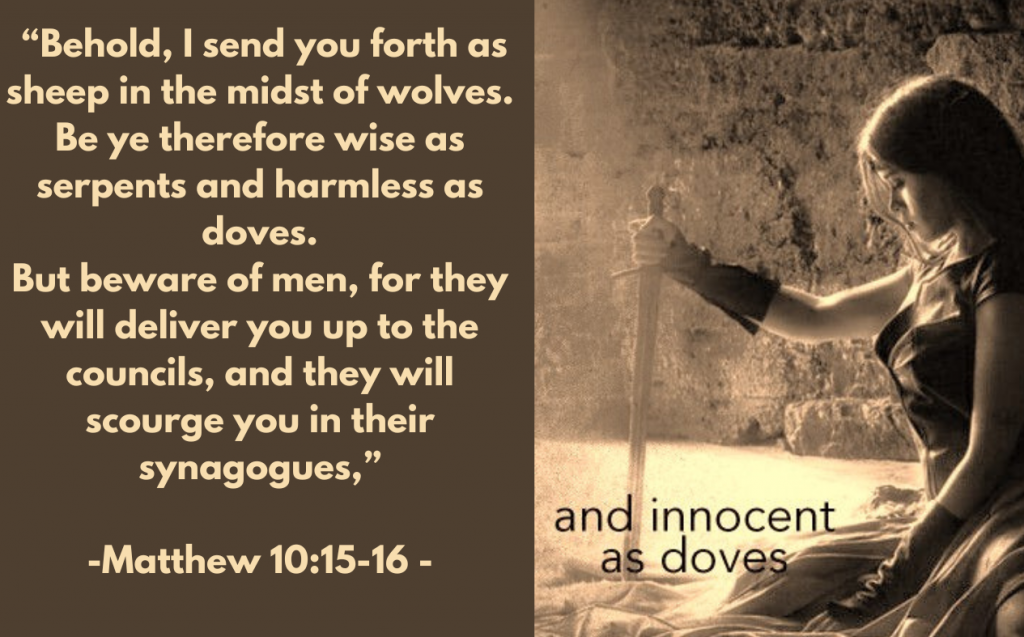
The war against the unseen is not what this website is about, it is about finding and experiencing the Living God. Don’t mess with the occult. It is not a game, fun, or a lark. It is deadly serious and can ruin your life and sap your life of all joy if you don’t have strong enough ties to God and his Elohim. The enemy is more powerful than most people can imagine. It is not some superficial Hollywood glitzy terror; it is a terror that penetrates to your very soul and feeds upon your pain and suffering. It is evil in the deepest and most soul-wrenching form and it is far more powerful and cunning than any human can face alone.
Perhaps you are skeptical about this. I hope to God you stay skeptical because if that darkness ever becomes a certainty in your life you will never be the same.
As I said, I am no longer skeptical about God or his enemy. I have seen sufficient evidence that I am totally convinced of their reality. I am still curious. I am still investigating and learning all I can. But I do not in any way shape or form doubt their reality and existence. I do have some doubt for modern churches and pastors who don’t believe in that reality and have a faith more strongly rooted in Scientism than scripture and truth.
The doubts I have today have to do with my own ability to understand and follow appropriately. I have no doubts about God, his daily presence, miracles, or about the existence his messengers just doubt in my own ability to serve as I would like to and my own limits to understanding.
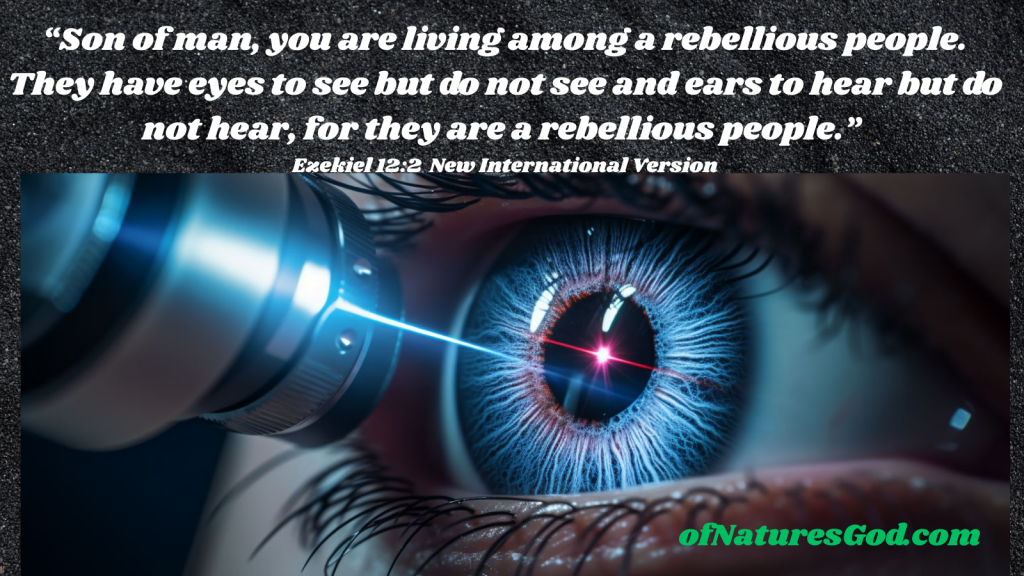
One thing to consider, if you are a real skeptic, is that I have had a great deal of training from both American intelligence, FBI, Secret Service, and the Israeli Mosad. Much of this training centered on interrogation and on telling if someone is telling the truth of not by both observation and by statement analysis. In addition to training, I have experience conducting more than 3500 interviews, investigations, and interrogations. Looking for lies involves a complex web of behavior and analysis, there are many sites online that purport to teach it but only a couple whose analysis seems competent to me. As I have said, the internet is full of self-styled experts. But one point I would like to make (although this description will be a massive oversimplification of what happens when someone makes up a lie,) is that when someone makes up a lie or a story, they want you to believe it. Therefore, they make the story or lie compact and attempt to minimize any loose ends. The last thing they want you to do is to examine more closely or investigate to clarify any inconsistencies. Real testimony, on the other hand is full of loose ends. This is because the statements make perfect sense to someone who was there but not to someone looking at the statement. There may be an explanation, but you have to ask questions to get to the truth. Liars don’t want more questions, so their statements tend to be tighter and stay in the bounds of the sensible.
I remember once reading witness statements for an event. I read the statements and thought, “Did these people even see the same event?” It did not make sense to me until I investigated the site itself with witness statements (or copies thereof,) in hand. When I stood where they stood and read what they saw they seemed to fit together better and I finally understood. Similarly, I remember reading the sermon on the mount. That is what most people call it. But in one Gospel it is a lesson given by Christ at the gate, and in another it is a lesson given on the road. It seems, superficially, like a contradiction. However, when I heard from a pastor who went on a tour of the holy land and walked the path that Jesus and his disciples walked it made sense. Teachers of the age often taught their students while walking. The three testimonies all fit together if Jesus began talking on that day to his disciples sitting by that the gate to the city, then they continued walking together on the roadway mentioned in the other gospel, and finally to the hill where he finished ‘the sermon on the mount.” For one disciple it was the sermon he started at the gate. For another it was the sermon Jesus told them on the road. For another he called it the sermon where Jesus finished…on the mount.

The point is that these “contradictions” are actually evidence of the truth of the scripture. If they were “making up stories” they would be “tight” and not be so full of loose ends. Because the last thing a liar wants is for you to look more closely at their lie and try to figure it out…because it is, after all, just a lie. The testimonies of scripture, on the other hand are not tight. They are full of references that we don’t understand, references that raise even more questions and invite inquiry. In other words, the scriptures do exactly the thing that made up stories don’t do. Fiction needs to be somewhat credible because people are only willing to suspend their disbelief so far. Therefore, lies need to stay, as much as possible, in the realm of the credible.
A person who wrote about only factual accounts had an article from the early 1900s on his bulletin to remind himself while the truth was more interesting than fiction. In the entire state of Illinois in the second decade of the 20th century there were only two automobiles. They collided. That story has to be true; it could never pass in a fictional account because it is completely incredulous. Anyone who read that in a novel would say, “yeah right, talk about Deus ex machina, this writer stinks. That is completely unbelievable.” But it was true.
In another story Jesus raises Lazarus from the dead. If this were a made-up event would not it be a lie told to emphasize the unquestionable power of God? Yet, when Lazarus comes forth is he ready to resume his life as a freshly ‘reborn’ human brought back into the world? No. How do we know that there is a spark of the real in this testimony? Jesus says, “Thou stinketh.” You would expect a body in a tomb for three days to stink, but if you were making up a story to show Jesus’ divinity and made up the resurrection why not let the power of God clean Lazarus up as well? But we have, “Thou stinketh.” It is not something I would put in a made-up story designed to show the dazzling power of God. In fact, I would put no detail in there that might detract from the show of power like Lazarus still stinking.
If the Bible were fiction, the stories would not raise endless questions in our minds; questions that allow for me to keep generating content for this site. As it is, I will never be able to explore all the questions of the faith in only one lifetime.

No, for a myriad of reasons I now believe that every word of God proves true. My only question is, in what context is it true. What is the core of that truth and what does it mean for our lives. I will continue to explore, investigate, scrutinize, and to ponder deeply these issues. I remember my Hebrew professor talking about passages telling us to “meditate” or “ruminate on the scriptures.” He said that the Hebrew word telling us to ruminate on the scripture, to meditate on it, in Hebrew is a word that is closely related to the word that describes a cow chewing its cud. If you didn’t grow up on a farm you may not understand that. But a cow has two stomachs. They eat and put it in the first stomach and carry it around. Then they call it back up into their mouth and chew the grass more when they decide they want it. They keep doing that, chewing the grass over and over until it is a kind of mushy paste. We are told in the Bible to “chew on scripture like a cow chews on its cud” ruminating and chewing on a passage over and over until we have broken it down to its very component parts and it is absolutely and completely digested and used up.
But for all our inquiry and for all our questions ultimately, we fall back on the own ignorance of our own understanding. At some point we must decide that we have asked enough questions and turn to proclaim God as God, our doubt is past, and to know in our heart of hearts that we are children of the living God.



